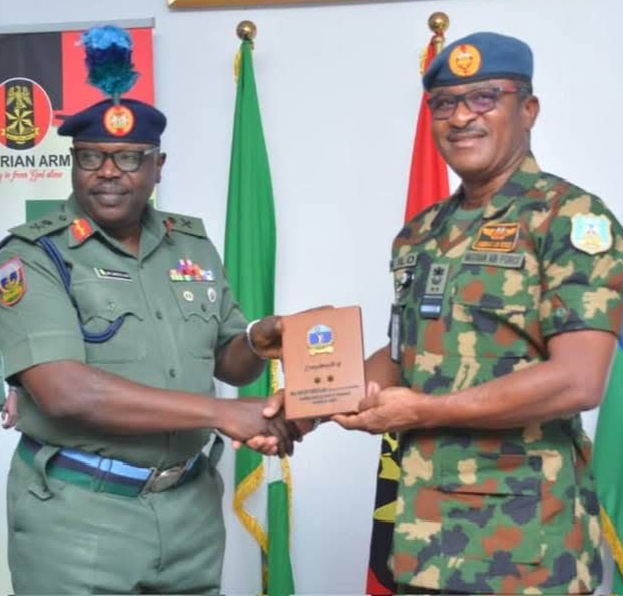
Nigeria’s pursuit of self-sufficiency in arms and ammunition production received a significant boost on Wednesday, as the Defence Industries Corporation of Nigeria (DICON) entered into a joint venture agreement with SP Offshore Nigeria Limited.
This strategic partnership sets the stage for the domestic manufacturing of a wide range of military hardware, including weapons, ammunition, drones, fast assault craft, and security vehicles.
Speaking during the signing ceremony held at DICON headquarters in Kaduna, the Director General of DICON, Major General Babatunde Ibrahim Alaya, described the agreement as a milestone in Nigeria’s ongoing efforts to build a strong and self-reliant military industrial base.
“This memorandum of understanding with SP Offshore represents a new chapter for DICON,” Alaya stated. “We are now collaborating with a Nigerian company to produce ammunition, weapons, and establish a jetty in Lagos to manufacture fast assault craft, security vehicles, and other essential platforms for national security.”
He disclosed that local production of ammunition is expected to begin within a year, with plans to scale up to full weapons manufacturing shortly thereafter.
Alaya emphasized that the partnership would significantly enhance indigenous capacity and enable DICON to better meet the increasing demands of the Nigerian Armed Forces and other security agencies.
He also expressed appreciation to President Bola Ahmed Tinubu for signing the DICON Act 2023, which provided the legal foundation for such strategic collaborations. He further acknowledged the support of the Minister of Defence, the Minister of State for Defence, the Chief of Defence Staff, and the Service Chiefs.
In his remarks, SP Offshore’s Chief Executive Officer, Mr. Obafemi Adekunle, said the agreement would bring billions of dollars in investment into Nigeria’s defence sector. He highlighted technology transfer and capacity building as key components of the partnership.
Adekunle noted that modern warfare is increasingly defined by technological superiority. “Future conflicts will not be fought solely with guns and bullets, but through technological means,” he said. “What we are offering the Nigerian military is a deterrence capability one that instills fear in adversaries and forces them to reconsider any move against the state.”
He also hinted at the development of advanced systems under the partnership, stating that some technologies could not yet be publicly revealed for strategic reasons. “Many innovations are underway, but we won’t unveil everything now. Adversaries don’t need to see our full hand let them find out in due time.”
Adekunle praised the DICON Director General for his swift and effective leadership, and commended President Tinubu along with legislators for backing the legal reforms that made the partnership possible. “This alliance is not just a business arrangement it symbolizes our collective strength and an unshakable commitment to securing Nigeria,” he said.
The joint venture is expected to not only fulfill Nigeria’s domestic defence needs but also build surplus capacity for future export of military equipment to other countries.
With this new agreement, stakeholders believe Nigeria is on a clear path to reducing reliance on foreign arms imports, conserving foreign exchange, and developing critical domestic capabilities in defence manufacturing.






